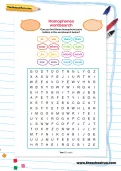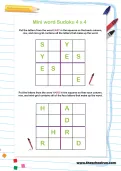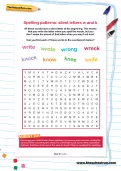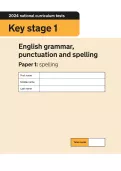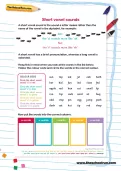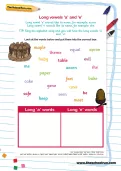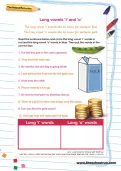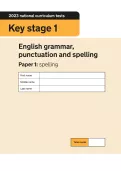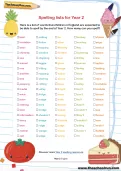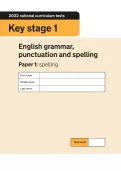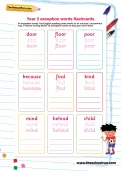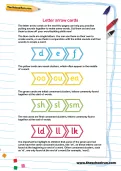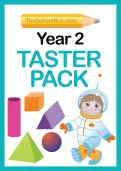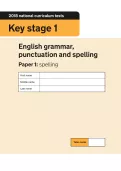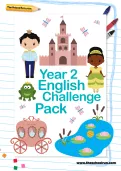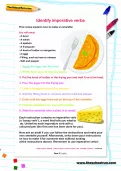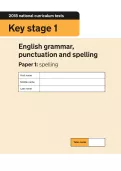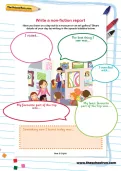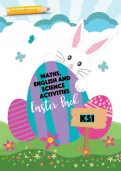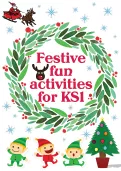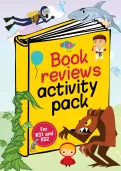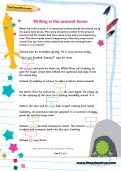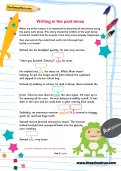Help your child prepare for the optional English KS1 SATs, taken at the end of Year 2, with some at-home practice. These complete Y2 SATs past papers from 2024 are the official Department for Education papers used in schools.
or
Register to add to your saved resources
A short vowel sound is pronounced for a shorter time than a long vowel sound. For instance, in the word fat, the vowel 'a' is short, but in fate, it's long. Use this worksheet to practise short vowel sounds and consolidate your child's phonics learning at home.
or
Register to add to your saved resources
A long vowel is pronounced for a longer time than a short vowel sound. In the word mat, the vowel 'a' is short, but in mate, it's long. Use this worksheet to practise the long vowel sounds 'a' and 'e' and consolidate your child's phonics learning at home.
or
Register to add to your saved resources
Long vowels are vowel sounds that are pronounced for a longer time than short vowels. They can change the meaning of words. In the word bit, the vowel 'i' is short, but in bite, it's a long vowel sound. Use this worksheet to practice long vowel sounds 'i' and 'o' and consolidate your child's phonics learning at home.
or
Register to add to your saved resources
Help your child prepare for the English KS1 SATs, taken at the end of Year 2, with some at-home practice. These complete Y2 SATs past papers from 2023 are the official Department for Education papers used in schools.
or
Register to add to your saved resources
Here is a list of words that cover the spelling rules children are expected to learn by the end of Year 2. How many can you spell?
or
Register to add to your saved resources
Help your child prepare for the English KS1 SATs, taken at the end of Year 2, with some at-home practice. These complete Y2 SATs past papers from 2022 are the official Department for Education papers used in schools.
or
Register to add to your saved resources
In exception words, the English spelling code works in an unusual / uncommon way. Use these flashcards to help your child practise writing these Y2 common exception words.
or
Register to add to your saved resources
Free letter arrow cards created by an experienced educator to help children practise putting sounds together and forming some words.
or
Register to add to your saved resources
Find out what your child will learn in Year 2 English, maths and science, try out a few learning activities and read our top tips about how to support their learning and development in our free, downloadable Year 2 Taster Pack.
or
Register to add to your saved resources
Help your child prepare for the English KS1 SATs, taken at the end of Year 2, with some at-home practice. These complete Y2 SATs past papers from 2019 are the official Department for Education papers used in schools.
or
Register to add to your saved resources
Challenging reading comprehensions and activities for Year 2 readers and writers, designed to stretch your child and offer them the opportunity to explore their year-group topics in greater depth.
or
Register to add to your saved resources
Already a subscriber? to view this content.
Identify and underline all the imperative verbs in this instruction text about making an omelette – then make and eat one yourself!
or
Register to add to your saved resources
Help your child prepare for the English KS1 SATs, taken at the end of Year 2, with some at-home practice. These complete 2018 Y2 SATs past papers are the official papers from the Department for Education, used in schools.
or
Register to add to your saved resources
Help your child write about a day out to a museum or gallery with a non-fiction report template, perfect for Year 2 learners and new writers.
or
Register to add to your saved resources
Already a subscriber? to view this content.
English, maths and science have a very chocolatey taste over the Easter break, with lots of maths, phonics, spelling and simple science investigations to keep chocolate-hunters busy and learning.
or
Register to add to your saved resources
Already a subscriber? to view this content.
Write letters to Santa, help the elves by counting presents, build a Christmas model village and more with our collection of festive learning activities for children in Year 1 and Year 2. Guaranteed to keep kids engaged with learning in the run-up to the celebrations!
or
Register to add to your saved resources
Already a subscriber? to view this content.
Help your child explore books and language with TheSchoolRun's Book reviews activity pack, a huge collection of reading comprehension and creative writing resources for Year 1 to Year 6.
or
Register to add to your saved resources
Already a subscriber? to view this content.
This story should be written in the present tense to tell the reader that the events in the story are happening now. Can you look at the underlined verbs and change them to the present tense?
or
Register to add to your saved resources
Already a subscriber? to view this content.
When we write a story, it is important to describe all the events using the same verb tense. This story should be written in the past tense to tell the reader that the events in the story have already happened. Can you look at the underlined verbs and change them to the past tense?
or
Register to add to your saved resources
